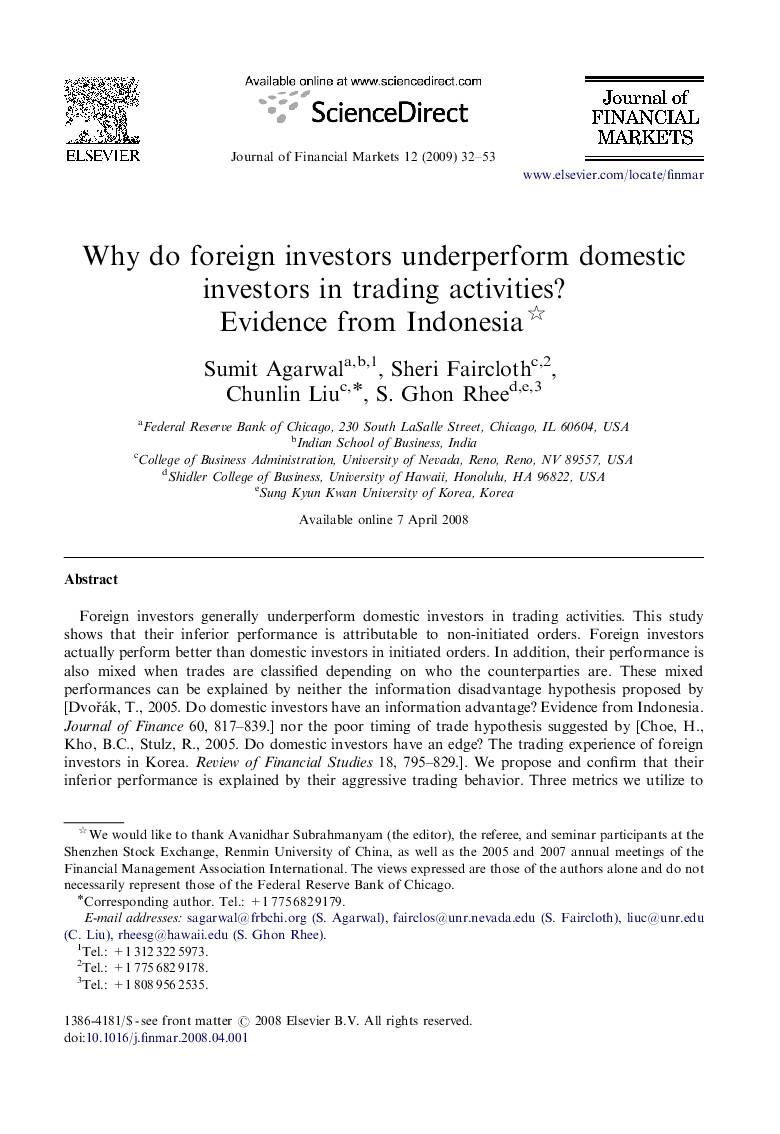| Article ID | Journal | Published Year | Pages | File Type |
|---|---|---|---|---|
| 961133 | Journal of Financial Markets | 2009 | 22 Pages |
Abstract
Foreign investors generally underperform domestic investors in trading activities. This study shows that their inferior performance is attributable to non-initiated orders. Foreign investors actually perform better than domestic investors in initiated orders. In addition, their performance is also mixed when trades are classified depending on who the counterparties are. These mixed performances can be explained by neither the information disadvantage hypothesis proposed by [DvoÅák, T., 2005. Do domestic investors have an information advantage? Evidence from Indonesia. Journal of Finance 60, 817-839.] nor the poor timing of trade hypothesis suggested by [Choe, H., Kho, B.C., Stulz, R., 2005. Do domestic investors have an edge? The trading experience of foreign investors in Korea. Review of Financial Studies 18, 795-829.]. We propose and confirm that their inferior performance is explained by their aggressive trading behavior. Three metrics we utilize to measure the aggressiveness of foreign investors' trading provide overwhelmingly strong evidence that foreign investors are more aggressive than their domestic counterparts.
Related Topics
Social Sciences and Humanities
Economics, Econometrics and Finance
Economics and Econometrics
Authors
Sumit Agarwal, Sheri Faircloth, Chunlin Liu, S. Ghon Rhee,
